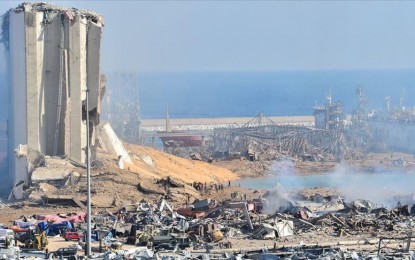
GENEVA – An airplane carrying 20 tons of World Health Organization health supplies has landed in Beirut to support the treatment of patients injured by the massive explosion that rocked the city, the WHO said Thursday.
“The supplies will cover 1,000 trauma interventions and 1,000 surgical interventions for people suffering from injuries and burns resulting from the blast,” it said.
Beirut and its surrounding suburbs were rocked on Tuesday by a massive blast that left at least 135 people dead and nearly 5,000 injured.
In the health emergency response, WHO’s logistics hub in Dubai airlifted the shipment.
“We are working closely with national health authorities, health partners, and hospitals treating the wounded to identify additional needs and ensure immediate support,” the organization quoted its representative in Lebanon, Dr. Iman Shankiti, as saying.
Due to the blast, the WHO said three hospitals in Beirut are now non-functional and two hospitals are partially damaged, leaving a critical gap in hospital bed capacity.
Injured patients are being transferred to hospitals across the country, as far south as Saida and north Tripoli, and many facilities are overwhelmed.
It said it would distribute the supplies to priority hospitals across Lebanon receiving and treating injured patients.
“This latest emergency comes in the context of recent civil unrest, a major economic crisis, Covid-19 outbreak, and heavy refugee burden,” the WHO said, noting the “legendary resilience of the Lebanese people.”
“Ensuring that there is continuity of the response to Covid-19 -- including targeting the most vulnerable for assistance -- is a priority for both the Ministry of Public Health and WHO,” the global health body said.
Following the explosion, Lebanese Prime Minister Hassan Diab declared Wednesday a national day of mourning.
A state of emergency has also been announced in Beirut for two weeks as of August 4.
The blast rocked Lebanon while the country is experiencing its worst economic crisis, including a dramatic drop in the value of the Lebanese pound against the US dollar. (Anadolu)
